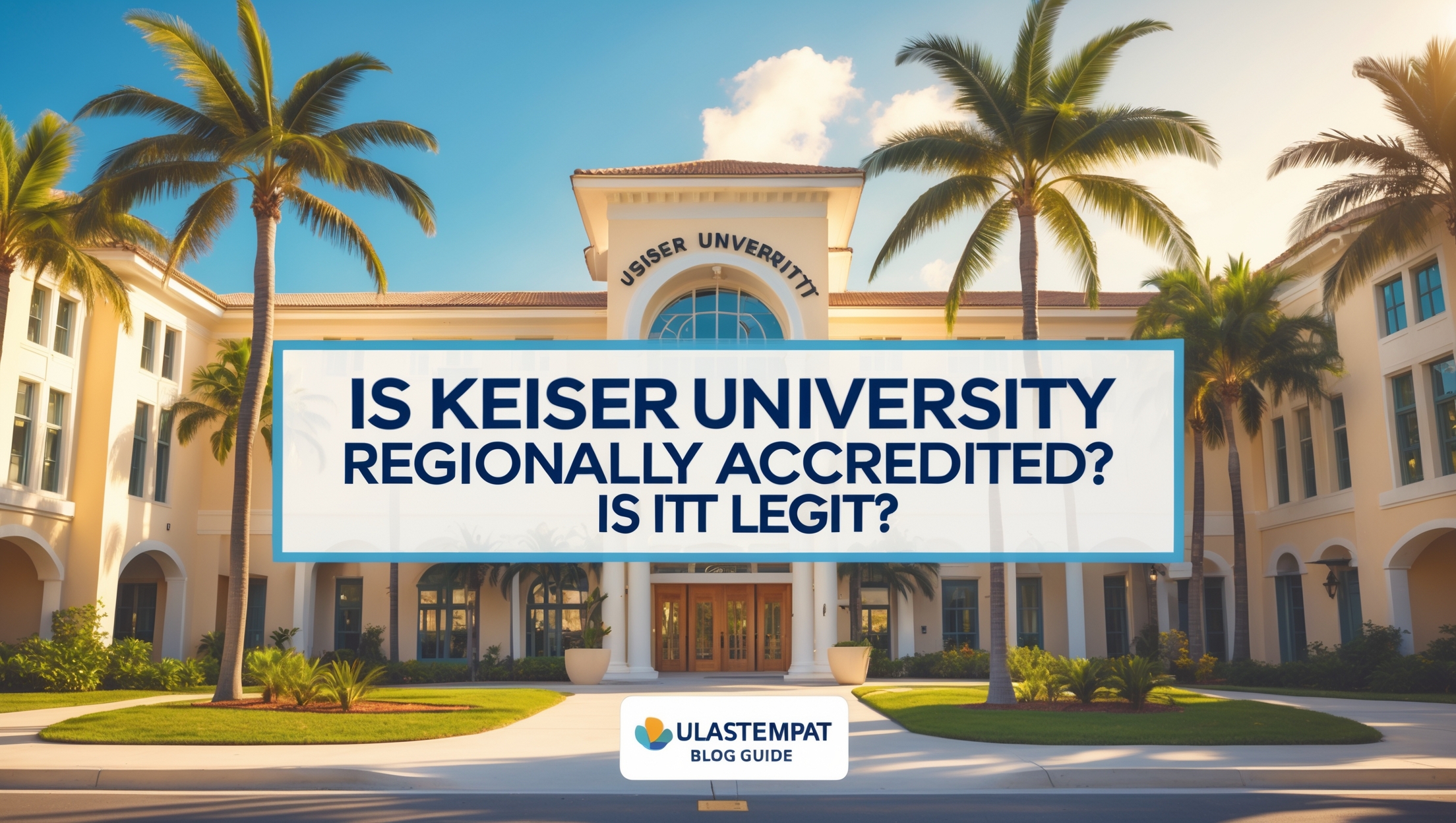Table of Contents
Is Keiser University Regionally Accredited? Is It Legit? Ulastempat — you might be wondering this if you’re thinking about going to college there. Maybe someone told you about it, or maybe you saw an ad online. But before you join, it’s smart to ask questions like, “Is it a real school?” or “Will my degree mean something later?”
Is Keiser University Regionally Accredited? Is It Legit? Ulastempat — let’s talk about this in a simple way. In this blog post, I’ll help you understand what “regionally accredited” means, if Keiser really is a trusted university, and what students should know before applying. Ready? Let’s break it down together!
What Regionally Accredited Means and Why It Matters
Accreditation is a stamp of approval from trusted groups. A regionally accredited school meets higher standards than other types of accreditation. It means the school has been checked by experts and found to meet quality rules.
When you choose a regionally accredited school, you can often transfer credits easily. That helps if you want to switch colleges or earn a higher degree later. Banks and employers usually trust degrees from these schools more too.
Parents and students find this helpful because federal aid is often only for regionally accredited schools. If a school is not regional, you might not get scholarships or loans. That can make school more costly.
Always ask: “Is the school regionally accredited?” This simple question can save stress later. It keeps your options open for work, further study, or learning abroad.
Is Keiser University Regionally Accredited? Is It Legit? Ulastempat – Fact Report
Keiser University is indeed regionally accredited by SACSCOC (Southern Association of Colleges and Schools Commission on Colleges). This accrediting body is one of six that the U.S. Department of Education recognizes. It allows the university to award associate through doctoral degrees.
Keiser University used to be a for‑profit college until around 2011, when it became non‑profit. That change improved its public image and made it clearer the institution aimed for long‑term quality.
Reviews show that some people question the reputation, although accreditation is solid. Students have confirmed that it holds legitimate accreditation. Others have noted that its name recognition may be lower among some employers.
In short, if you ask Is Keiser University Regionally Accredited? Is It Legit? Ulastempat, the answer is yes on accreditation. But reputation, recognition, and student experience are extra things to consider.
Why Accreditation Affects Job and Credit Transfer
Credit transfer is simpler when a school is regionally accredited. If you study at a school like Keiser and then move to another U.S. college, many institutions will accept your credits. That can help you graduate faster or start higher level classes.
Employers usually trust degrees from regionally accredited schools more. They often look for proof of quality education. Even if some people haven’t heard of Keiser, the accreditation signals legitimacy to HR departments.
Financial aid and grants often require regional accreditation. This means Keiser students are eligible for federal aid, state aid, and many scholarships. That support makes a big difference when paying for college.
However, student experiences matter too. Accreditation helps open doors, but real value depends on how much you learn, your networking, internships, and personal effort to build your future.
Keiser University’s Background and Accreditation Journey
Founded in 1977, Keiser began as a small career college in Florida. Over time it grew into a university that offers degrees from associate to doctoral levels.
Keiser achieved Level VI regional accreditation from SACSCOC, which is the highest institutional accreditation for degree‑granting schools across all levels.
In 2011, the university switched from for‑profit to non‑profit status, which improved transparency and public trust. It now operates campuses across Florida and even internationally in countries like Nicaragua and China.
The shift and accreditation history show a long-term commitment to academic quality. It may help answer questions like “Is Keiser University Regionally Accredited? Is It Legit? Ulastempat” with more reassurance.
Student Reviews and Perceptions of Keiser’s Legitimacy
Many students say Keiser is legitimate because it has regional accreditation. Some have shared that their degrees were accepted for jobs or graduate school. That shows the accreditation holds real value in the real world.
Others warn that the university’s reputation isn’t very strong in certain job markets. Comments like “most hiring managers would call it roughly the same as not having a degree” reflect concerns about prestige or employer familiarity.
Some students had mixed experiences. A few said the courses were okay and helped them get started, but that they had to learn much more on the job—especially in technical fields like IT or healthcare.
Reviewers also mention debt concerns and tuition costs. Many recommend comparing Keiser with public or better-known universities before enrolling, to make sure you get the most value.
How to Check Accreditation for Yourself
You can easily verify Keiser’s accreditation online. Look for official directories like those from the Department of Education or regional accrediting agencies. These will confirm the school’s status clearly.
Another way to check is to visit the accreditor’s website directly and search for the university by name. Most schools display their accreditation publicly on their website too.
If you are interested in a specific program—like nursing or business—look for program-specific accreditation, such as CCNE for nursing or ACBSP for business programs. These are extra layers of quality assurance.
Asking the university for proof or doing your own search gives peace of mind. It’s a smart step before joining any college, not just Keiser.
Final Advice on Is Keiser University Regionally Accredited? Is It Legit? Ulastempat
To wrap up, the answer to your question is clear: Yes, Keiser University is regionally accredited and it is a legitimate institution. That means it meets national standards and can award real degrees.
Still, what matters most is your own goal. If you’re looking for strong rankings or big-name prestige, other universities might suit you better. But for some, Keiser’s hands-on style and flexible options work just fine.
Before enrolling, consider:
• Whether the program has extra accreditation
• Career support and internship options
• Tuition costs and financial aid availability
In the end, asking Is Keiser University Regionally Accredited? Is It Legit? Ulastempat is the right move. Just make sure you follow up by comparing your choices carefully and thinking about your long-term plans.
FAQs
Q: Is Keiser University regionally accredited?
A: Yes, Keiser University is regionally accredited by the Southern Association of Colleges and Schools Commission on Colleges (SACSCOC).
Q: Is Keiser University a legit school?
A: Yes, it is a legitimate university with recognized regional accreditation, offering associate to doctoral degrees across various programs.
Q: Can I transfer credits from Keiser University?
A: In most cases, yes. Because it’s regionally accredited, many other colleges will accept its credits, though each school has its own rules.
Q: Does Keiser University offer financial aid?
A: Yes, students at Keiser University may qualify for federal, state, and institutional financial aid, including grants, loans, and scholarships.
Q: Are Keiser University degrees accepted by employers?
A: Generally yes, though some employers may prefer degrees from more widely known institutions. Its regional accreditation adds credibility.
Q: What kind of programs does Keiser offer?
A: Keiser offers programs in healthcare, business, IT, education, law, and more—ranging from associate to doctoral level degrees.

